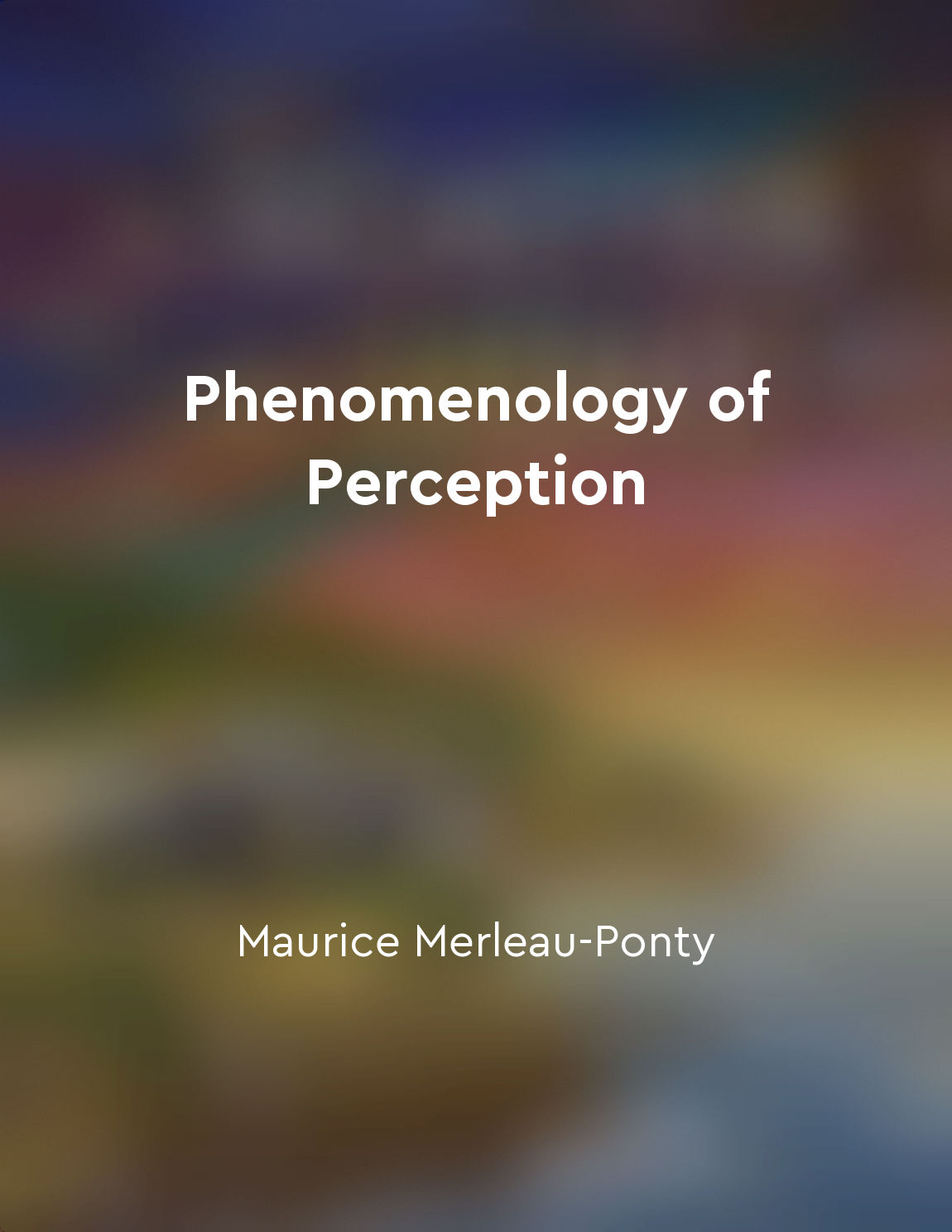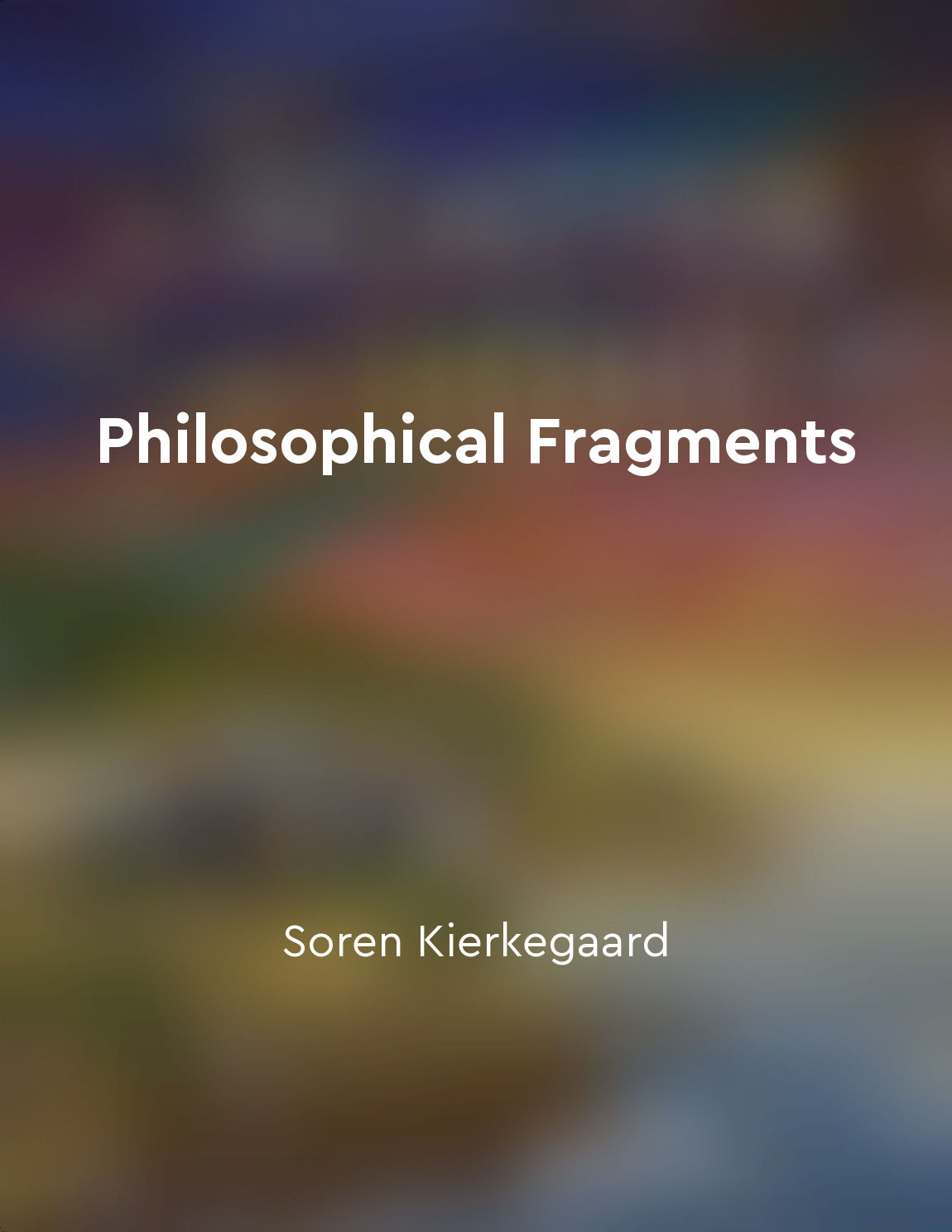Transcendental dialectic exposes error in metaphysical reasoning from "summary" of Immanuel Kant: Prolegomena to Any Future Metaphysics by Immanuel Kant
Transcendental dialectic serves as a critical tool in the realm of metaphysics, unveiling the deceptive nature of pure reason. It brings to light the errors that can arise in metaphysical reasoning, revealing the limitations of our understanding when it comes to concepts beyond empirical knowledge. Through the process of dialectical illusion, reason may lead us astray by presenting us with seemingly valid but ultimately unsound arguments. Metaphysical reasoning often involves speculation about the nature of reality beyond what can be observed or experienced. This speculative nature opens the door to potential errors, as our reason may construct elaborate theories based on faulty assumptions or misunderstood concepts. Transcendental dialectic exposes these errors by subjecting metaphysical claims to rigorous examination, revealing inconsistencies and contradictions that may arise when we stray beyond the boundaries of empirical knowledge. One of the key insights provided by transcendental dialectic is the distinction between appearances and things in themselves. While we can only know objects through our sensory experiences, reason may lead us to make unwarranted assumptions about the true nature of reality. By highlighting the limitations of our knowledge, transcendental dialectic helps us avoid falling into the trap of metaphysical illusions that can distort our understanding of the world. Through the process of transcendental dialectic, Kant seeks to establish a more secure foundation for metaphysical inquiry by exposing the errors and illusions that can arise from unchecked reason. By subjecting metaphysical claims to critical scrutiny, we can avoid the pitfalls of speculative reasoning and gain a clearer understanding of the limitations of our knowledge. Transcendental dialectic thus serves as a valuable tool for guiding our inquiries into the nature of reality and ensuring that our metaphysical theories are grounded in sound reasoning.Similar Posts

Through his experiences, Yogananda shows the transformative power of divine grace
Yogananda's journey is a powerful demonstration of the profound impact divine grace can have on an individual's life. Through h...
Reason alone cannot guide moral decisionmaking
Reason is a faculty of the mind that is often considered the chief guide in determining right and wrong. However, when it comes...
Adaptability and growth lead to a fulfilling life
The idea that adaptability and growth are crucial to a satisfying existence is not a novel one. It is a concept that has been r...
Causal relationships cannot be proven with certainty
Causal relationships are a central part of human understanding and reasoning. When we observe events happening in a certain ord...

The body is a source of existential depth and richness
The body is not just a physical entity; it is a source of existential depth and richness. It is through our bodies that we expe...

Through selfexamination, one can come to a deeper understanding of the human condition
Self-examination is a crucial process that can lead to a profound understanding of the complexities of human existence. By turn...

Rational thought should guide our beliefs and actions
Reason, the gift bestowed upon us by nature, is the greatest tool we possess to navigate the complexities of life. It is throug...
Being must be interrogated from multiple angles
To truly understand Being, one must approach it from various perspectives. This multifaceted interrogation is essential in orde...
